Vampirism & The 'Real' Vampire Community
I'm known to the real vampire community as Merticus. I've been a member of the vampire community since 1997. I'm a founding member of the Atlanta Vampire Alliance [AVA], co-founder of the research company Suscitatio Enterprises, LLC, founder of Vampire Community News (VCN) on Twitter, Facebook, and WordPress, the current administrator for Voices of the Vampire Community (VVC), organizer for the Atlanta Vampire Meetup Group, and a principal contributing author and researcher for the Vampirism & Energy Work Research Study (VEWRS & AVEWRS). I'm a native to Atlanta, GA and am active in both the online and offline community; consulting not only with fellow members of the vampire community but also with academicians, law enforcement, and the media on matters relating to psychic and sanguinarian 'real' vampirism and the vampire subculture.
I've contributed to numerous academic and general media articles regarding vampirism; including an October 2007 interview with TAPS Paranormal Magazine, an October 2008 interview with ABCNews.com, an November 2008 interview with the Washington Post, an August 2009 interview with the St. Petersburg Times, an October 2009 interview with the Miami Herald, an November 2009 interview with the Atlanta Journal-Constitution, provided technical background and consultation to ABC's 20/20 Real Life Vampires special which aired November 2009, and I've consulted extensively with Joseph Laycock on a paper delivered before the annual conference of the American Academy of Religion in November 2007 and for his 2009 book Vampires Today: The Truth About Modern Vampirism. I've also contributed to Brad Steiger's 2009 book, Real Vampires, Night Stalkers, and Creatures from the Darkside, Corvis Nocturnum's 2009 book, Allure of the Vampire: Our Sexual Attraction to the Undead, David Skal's 2009 book, Romancing The Vampire: From Past To Present, J. Gordon Melton's 2010 book, The Vampire Book: Encyclopedia Of The Undead (3rd Ed.), Rosemary Ellen Guiley's 2011 book, The Encyclopedia Of Vampires & Werewolves (2nd Ed.), and others.
I regularly attend and present at gatherings throughout the United States and am a member of numerous forums and discussion groups. Personally, I maintain a collection of non-fictional writings, artifacts, and accounts of vampires throughout history as well as contemporary information regarding vampirism. I also collect period works [ http://www.librarything.com/profile/Merticus ] pertaining to the occult, witchcraft, demonology, martyrdom, religion, and angels.
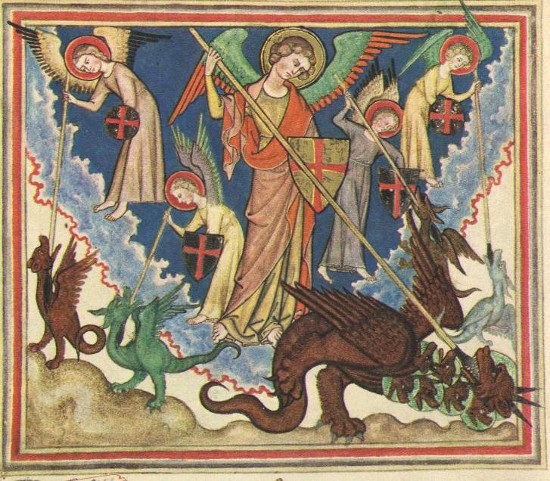
"Hoc solum cave ne sanguinem comedas sanguis enim eorum pro anima
est et idcirco non debes animam comedere cum carnibus." - D. 12:23
|
Contributions, Citations, Or Mention Of The Atlanta Vampire Alliance [AVA], Suscitatio Enterprises, LLC - Vampirism & Energy Work Research Study (VEWRS & AVEWRS), Or Merticus Appear In The Following Publications:
   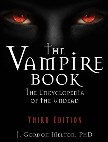 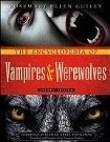 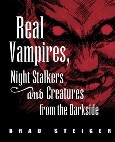 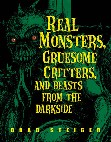
   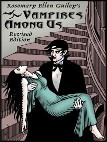 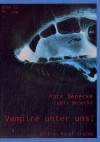 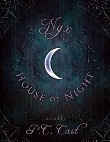 
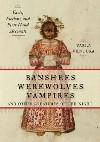     
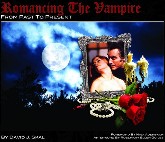 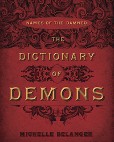  
  
|
Demystifying 'Real' Vampirism For The Rest Of Us
An overview of modern vampirism for the general publicPsychic and sanguinarian vampires are individuals who cannot adequately sustain their own physical, mental, or spiritual wellbeing without the taking of blood or vital lifeforce energy from other sources. Without feeding a vampire will become lethargic, sickly, depressed, and often go through physical suffering or discomfort. Such individuals generally consider "real vampirism" to be an extension of personal identity rather than a lifestyle. While there are those who self-identify as psychic or sanguinarian vampires who adhere to the "vampire lifestyle" by adopting a vampire aesthetic, wearing prosthetic fangs, or participating in roleplay games, vampi(y)re lifestylers are not synonymous with those who believe they must feed on psychic or life energies and/or blood. Blood fetishism and sanguinarian vampirism are likewise not synonymous and exist as their own distinct subcultures. Blood fetishists are aroused by seeing, smelling, and touching blood whereas sanguinarian vampires believe that the drinking of small quantities of blood represents a health and quality of life issue - a need rather than a desire. Real vampirism does not constitute a cult, a religion, a paraphilia, an offshoot of the BDSM subculture, a community composed exclusively of delusional or mentally ill participants, and is not what is depicted in fictional books, on television, or in movies. The use of obsolete psychiatric diagnostic terminology such as "Clinical Vampirism", "Renfield's Syndrome", and "Autovampirism" or the comparison of vampirism to the medical condition known as Porphyria is inaccurate and without merit. Vampirism is not considered a religion by the majority of self-identified vampires whose most commonly reported religious and spiritual beliefs include Atheism, Paganism, Christianity, Satanism, Buddhism, Daoism, Shamanism, Magick, Occultism, Wicca, and Vampi(y)ric Spirituality. Some in the media and in academia have chosen to characterize vampires as criminals who engage in subversive and dangerous practices. Real vampires are mistakenly thrust into the same categories as ritual animal or human sacrifice, cannibalism, fetishism, fanatical religious expression, and labeled as unstable threats to themselves and others. The overwhelming majority of self-identified vampires adhere to ethical and safe feeding practices, are of sound mind and judgment, and productively contribute to society. Many self-identified vampires report that they suffer from asthma, migraine headaches, depression, chronic fatigue syndrome, fibromyalgia, and other endocrine system related disorders exceeding typical prevalence rates with comorbidity of possible adrenal or pituitary dysfunction. Due in large part to increased sociological-based scholarship there persists a hope that not only will there be more awareness on the part of the general public as to the practices and beliefs of "real-life vampires", but also increased interest from medical researchers. Some sanguinarian and even psychic vampires would like to see genetic and other comprehensive medical testing conducted to help determine what about them, if anything, is truly aberrant from the rest of humanity. Even those self-identified vampi(y)res not searching for answers through medical science only wish to be left to their own devices and exist among us without fear of ridicule or hostility. Healthy skepticism and analytical thinking aren't enemies of the vampire community - they are essential tools integral to the growth and understanding of vampiric identity.
Demystifying 'Real' Vampirism For The Rest Of Us
By Merticus; Atlanta Vampire Alliance [AVA] & Suscitatio Enterprises, LLC
February 10, 2013 - This article may be redistributed, translated, or adopted by other organizations provided there are no content modifications and full citation is included.
http://www.atlantavampirealliance.com/educational/demystification.html
|
Academic | News | Media Articles:
- Ripley's Believe It Or Not! - Self Identifying Vampires
Atlanta Vampire Alliance - January 6, 2016
http://www.gocomics.com/ripleysbelieveitornot/2016/01/03
- "Entrevista Con Un Vampiro (Real): 'Basta Una Cucharada De Sangre A La Semana'"
By Kiko Amat for El Mundo (Spain) - November 26, 2015
http://www.elmundo.es/papel/historias/2015/11/26/56559ca946163f81098b4633.html
- "Vampirët: Historia E Vërtetë"
By Endri Farka for Magazine Albania - November 8, 2015
http://magazinealbania.com/vampiret-historia-vertete/
- "Real Life Vampires: Meet A Guy Who Actually Drinks Human Blood"
Irish Examiner - October 30, 2015
http://www.irishexaminer.com/examviral/real-life/real-life-vampires-meet-a-guy-who-actually-drinks-human-blood-362351.html
- "Lives Of Real Vampires: More Than A Diet Of Blood"
By Merticus for Everyday Health - October 29, 2015
http://www.everydayhealth.com/columns/hear-me-out/lives-of-real-vampires-seeking-acceptance-from-society-and-medical-professionals/
- "Dracula On The Couch: The Psychiatry Of Vampires"
Myth, Medical Illness, Madness, And Modern "Real Vampires"
By Joseph M. Pierre M.D.; Health Sciences Clinical Professor Of Psychiatry At UCLA
Psychology Today (Psych Unseen) - October 29, 2015
http://www.psychologytoday.com/blog/psych-unseen/201510/dracula-the-couch-the-psychiatry-vampires
- "Why 'Real Vampires' Fear Going To The Doctor"
By Jennifer J. Brown, PhD for Everyday Health - October 28, 2015
http://www.everydayhealth.com/news/why-real-vampires-fear-going-doctor/
- "Interview With A Vampire (Merticus): Here's What Real Vampires Do On Halloween"
By Yvette Caster for METRO UK - October 28, 2015
http://metro.co.uk/2015/10/28/interview-with-a-vampire-heres-what-real-vampires-do-on-halloween-5449290/
- "A Talk With Merticus Of The Atlanta Vampire Alliance" (Impersonated Comedy Segment)
Kevin & Bean Radio Show - KROQ (CBS Local) - Los Angeles, CA
Minute 30:07 To 37:20 - October 28, 2015
http://kroq.cbslocal.com/category/kevin-bean/
https://itunes.apple.com/us/podcast/k-b-podcast-wednesday-october/id260501007?i=355760997&mt=2
- "5,000 Vampires Live In The U.S., Drink Donors' Blood For Energy"
By Meg Wagner for New York Daily News - October 27, 2015
http://www.nydailynews.com/news/national/5-000-vampires-live-u-s-drink-blood-energy-article-1.2412910
- "Inside The Human Blood-Drinking, 'Real Vampire' Community Of New Orleans"
By Yanan Wang for The Washington Post - October 26, 2015
http://www.washingtonpost.com/news/morning-mix/wp/2015/10/26/inside-the-human-blood-drinking-real-vampire-community-of-new-orleans/
- "Meet The New-Age Vampires - They Call Themselves Sanguinarians And 'Need' To Drink Human Blood"
By Rishabh Banerji for India Times - October 23, 2015
http://www.indiatimes.com/news/world/meet-the-new-age-vampires-they-call-themselves-lifestylers-and-need-to-drink-human-blood-246543.html
- "The People Who Drink Human Blood"
By David Robson for BBC: Future - October 21, 2015
http://www.bbc.com/future/story/20151021-the-people-who-drink-human-blood
- "New Study Confirms Existence Of Real-Life ‘Vampires’"
By Marygrace Taylor for Men’s Health Magazine - October 9, 2015
http://www.menshealth.com/science-of-real-vampires
- "Interview With A Vampyre - Berinvönn Dærthledd"
By Kirsten Swann for Anchorage Press - September 10, 2015
http://www.anchoragepress.com/cover-news/interview-vampyre
- "Interview With A Real-Life Vampire: Why Drinking Blood Isn't Like In Hollywood"
By Kim Wall of The Guardian - August 15, 2015
http://www.theguardian.com/society/2015/aug/15/real-life-vampires-interview
- "On Second Thought - The Real Vampires"
Interview w/John Edgar Browning & Merticus
Georgia Public Broadcasting (GPB) Public Radio - August 5, 2015
http://www.gpb.org/on-second-thought/episodes/307
- "The Real-Life Vampires Of Atlanta""Real-Life Vampires: We 'Feed' During Sex"
By Abby Haglage of The Daily Beast - August 4, 2015
http://www.thedailybeast.com/articles/2015/08/04/i-feed-once-a-week-the-real-life-vampires-of-atlanta.html
"The Daily Beast Podcast: Interview With A Vampire (Merticus)"
http://www.thedailybeast.com/articles/2015/08/08/the-daily-beast-podcast-interview-with-a-vampire.html
- "There's A Global Community Of Actual Vampires & They're Afraid To Go To The Doctor"
By Isha Aran of Fusion - July 13, 2015
http://fusion.net/story/164737/real-life-vampires-drinking-human-blood/
- "What It's Like To Be A Real-Life Vampire"
By Sarah Jacoby of Refinery29 - July 10, 2015
http://www.refinery29.com/2015/07/90375/real-vampires-study
- "Is 'Vampire' A Genuine Identity? A Look At The Surprising World Of 'Alternate Identities'"
By Sarah Caspari of The Christian Science Monitor - July 9, 2015
http://www.csmonitor.com/USA/USA-Update/2015/0709/Is-vampire-a-genuine-identity-A-look-at-the-surprising-world-of-alternate-identities
- "Real Vampires Exist, And They Need Counseling Too"
By Max Kunter of Newsweek - July 9, 2015
http://www.newsweek.com/real-vampires-exist-and-they-need-counseling-too-351575
- "Take People Who Think They Are Vampires Seriously, Taxpayer-Funded Professor Urges"
By Eric Owens of The Daily Caller - July 7, 2015
http://dailycaller.com/2015/07/08/take-people-who-think-they-are-vampires-seriously-taxpayer-funded-professor-urges/
- "Interview (And Movie) With A Real-Life Vampire"
By Aimee Heckel for The Huffington Post - October 31, 2014
http://www.huffingtonpost.com/aimee-heckel/interview-and-movie-with-_b_6079922.html
- "The 10 Best U.S. Cities To Be A Vampire"
By Christin Camacho for Redfin - October 28, 2014
https://www.redfin.com/blog/2014/10/10-best-cities-to-be-a-vampire.html
- "Lawyers, Doctors, Bloodsuckers: The Real Vampires Of New York City... And Their Fangsmith"
By Emily Levy of Vocativ - August 6, 2013
http://www.vocativ.com/08-2013/ra-the-fangsmith-the-court-of-lazarus-and-the-real-vampires-of-new-york-city/
- "Vampirismo, Un Culto Que Sigue Vivo"
By Giovanna Alfieri of Excelsior (Mexico) - August 12, 2012
http://www.excelsior.com.mx/index.php?m=nota&buscado=1&id_nota=853026
- "'Vampire' Graves Unearthed Near Black Sea Town"
By Ines Novacic for ABC News & Radio - June 7, 2012
http://abcnews.go.com/blogs/lifestyle/2012/06/vampire-graves-unearthed-by-the-dead-sea/
- "The Bite Club"
By Annie Ali Khan of Express Tribune Pakistan (International Herald Tribune) - February 12, 2012
http://tribune.com.pk/story/333917/the-bite-club/
- "Ask A Vampire: Merticus Guest Reviews The Twilight Saga: Breaking Dawn - Part 1"
By Julie Miller of Movieline - November 18, 2011
http://www.movieline.com/2011/11/ask-a-vampire-merticus-guest-reviews-the-twilight-saga-breaking-dawn---part-1.php
- "Beyond Twilight: Self-Proclaimed Vampires Lurk In Colorado"
By Aimee Heckel of Daily Camera - November 18, 2011
http://www.dailycamera.com/lifestyles/ci_19352654
- "Twilight Debunked: A Vampire Expert On The Truth About Vampire Lore"
By Tamara Hinson of Yahoo Lifestyle UK - November 17, 2011
http://uk.lifestyle.yahoo.com/twilight-debunked--a-real-life-vampire-on-the-truth-about-vampire-lore.html
- "Unearthing Real Vampire Culture"
By Anne Neville of Buffalo News - October 28, 2011 (Printed October 30, 2011)
http://www.buffalonews.com/life/article611232.ece
- "Blood-Inspired Perfume Piques Vampire Curiosity"
By Larry Knowles of AOL News - April 20, 2011
http://www.aolnews.com/2011/04/20/blood-inspired-perfume-piques-vampire-curiosity/
- "Merticus Interview: Media’s Depiction Of Vampires - CSI Las Vegas: "Blood Moon""
Interview by John W. Morehead of TheoFantastique - October 10, 2010
http://www.theofantastique.com/2010/10/10/merticus-interview-media%E2%80%99s-depiction-of-vampires-csi-las-vegas-blood-moon/
- "Vampires Seek Tolerance, Understanding From Others"
By Christopher Quinn of the Atlanta Journal-Constitution - November 17, 2009
http://www.ajc.com/lifestyle/vampires-seek-tolerance-understanding-199809.html
Academic & Scholarly Citations:
- Vampires Today: The Truth About Modern Vampirism
Joseph Laycock, PhD Boston University & MTS Harvard Divinity School
Praeger Publishers (2009); Pages 7-8, 13-14, 18, 26, 33, 34, 37-38, 60-61, 67-68, 82, 84, 106-07, 110, 118, 121-122, 125, 133-34, 138-42, 145, 158, & 161-63
- Handbook Of Hyper-Real Religions
Adam Possamai, PhD (Editor); Joseph Laycock, PhD (Author - Real Vampires)
Brill Handbooks On Contemporary Religion Volume 5 (2012); Pages 141-163
- Real Vampires as an Identity Group: Analyzing Causes and Effects of an Introspective Survey by the Vampire Community
Joseph Laycock, PhD - Author of Vampires Today: The Truth About Modern Vampirism
Nova Religio - The Journal of Alternative and Emergent Religions
August 2010, Vol. 14, No. 1, Pages 4–23
http://www.jstor.org/pss/10.1525/nr.2010.14.1.4
Abstract:
"Real vampires" believe that they must either consume blood or feed on "subtle" energy in order to maintain their physical, mental, and spiritual health. Recent scholarship has analyzed vampirism as a religious movement or as a cluster of "vampire religions." This article argues that vampirism should be viewed foremost as an identity around which social and religious institutions have formed. This model accounts for the mosaic of religious and cultural orientations held by vampires and acknowledges the vampire community's claims that vampirism is not a choice. It also facilitates a functionalist reading of vampire discourse as validating a new category of person.
Do We Always Practice What We Preach? Real Vampires' Fears Of Coming Out Of The Coffin To Social Workers And Helping Professionals
DJ Williams, MSW, MS, PhD & Emily E. Prior, MA
Critical Social Work, 2015 Vol. 16, No. 1
http://www1.uwindsor.ca/criticalsocialwork/Vampires
Abstract:
Helping professionals in multiple disciplines, including social workers, are commonly taught to embrace human diversity, think critically, empower clients, and respect client self-determination. Indeed, much of clinical practice with clients is predicated on such professional values, which are important to the establishment of a strong therapeutic alliance and an effective treatment outcome. This study applies qualitative measures, such as an open-ended questionnaire and creative analytic practice (CAP) strategy in the form of poetic representation, to provide insights into how people with a specific nontraditional identity, that of “real vampire,” feel about disclosing this salient identity to helping professionals within a clinical context. As a CAP method, poetic representation is valuable in acknowledging participants’ subjective realities and preserving emotional intensity in participants’ responses. Results suggest that nearly all participants were distrustful of social workers and helping professionals and preferred to “stay in the coffin” for fear of being misunderstood, labeled, and potentially having to face severe repercussions to their lives.
- Social Work, BDSM and Vampires: Toward Understanding and Empowering People with Non-Traditional Identities
D.J. Williams, PhD
Canadian Social Work - Volume 15 Number 1, Fall 2013; Pages 10-24
http://www.casw-acts.ca/en/resources/publications/canadian-social-work
Abstract:
Social workers are obligated to embrace human diversity, challenge social injustice, and work to empower vulnerable populations. Two separate, but somewhat related, law-abiding populations that remain hidden due to legitimate fears of marginalization and oppression, including among social workers, are the BDSM and real vampire communities. In an effort to educate social workers who likely will encounter (whether knowingly or not) individuals with BDSM or vampire identities, this article discusses current scholarly literature on these communities and their practices. Suggestions for empowering people who practice BDSM or vampirism are also provided.
Les travailleurs sociaux ont le devoir de tenir compte de la diversité humaine, de s’attaquer à l’injustice sociale et d’aider les populations vulnérables à se prendre en charge. Deux populations respectueuses des lois, distinctes bien qu’elles aient des caractéristiques communes, vivent dans la clandestinité en raison d’une peur légitime d’être marginalisées et opprimées, notamment par des travailleurs sociaux; il s’agit en l’occurrence la communauté BDSM et celle de vrais vampires. Voulant éduquer les travailleurs sociaux qui (qu’ils en soient conscients ou non) vont vraisemblablement venir en contact avec des personnes dont l’identité est liée au BDSM ou au vampirisme, cet article se penche sur la littérature savante relative à ces communautés et leurs pratiques. On y présente aussi quelques suggestions quant à certains moyens pouvant permettre aux personnes qui s’adonnent au BDSM ou au vampirisme de se prendre en charge.
- Contemporary Vampires and (Blood-Red) Leisure: Should We Be Afraid of the Dark?
DJ Williams, LCSW, PhD - Idaho State University
Leisure/Loisir - Volume 32 (2) (2008); Pages 513-539
- “Predatory Spirituality:” Vampire Religion In America
David and Kiara Falk of Trinity Evangelical Divinity School
Sacred Tribes Journal - Volume 3 Number 2 (2008); Pages 102-131
Other Citations Or Notable Mention:"Real Vampires & The Vampire Subculture"
Special Report by Suzanne Stratford of FOX 8 News (Cleveland, OH) - November 6, 2009
http://www.youtube.com/watch?v=knKCKvJ-icE
Shadowdance Podcast #029 - "Vampires"
Hosts: Michelle Belanger, Chris Miller, & Jackie Williams
June 21, 2009
http://www.shadowdancepodcast.com/shows/Shadowdance029.mp3
Coast To Coast AM w/George Noory
"Psychic Vampires" w/Michelle Belanger - September 18, 2006
"Hauntings & Vampires" w/Michelle Belanger - May 26, 2009
http://www.coasttocoastam.com/guest/belanger-michelle/6791
Allure Of The Vampire: Our Sexual Attraction To The Undead
Corvis Nocturnum
Dark Moon Press - July 2009; Pages 5-12, 120, 121, 163, 176-178, 201-202, 259, & 260
Real Vampires, Night Stalkers And Creatures From The Darkside
Brad Steiger
Visible Ink Press - September 1, 2009; Pages 120-124, 127, 128-130, & 280
The Weiser Field Guide To Vampires: Legends, Practices, And Encounters Old And New
J. M. Dixon
Weiser Books - October 1, 2009; Pages 37 & 140
A Field Guide To Otherkin
Lupa
Megalithica Books - April 2007; Page 147
Inner Alchemy: Energy Work & The Magick Of The Body
Taylor Elwood
Megalithica Books - January 2007; Page 166
Meeting Of The Elders Of The Transylvanian Society Of Dracula (TSD)
By Mark Benecke, PhD for Vampyre Chronicles - May 2008; Volume 2, Issue 9, Pages 26-27
http://wiki.benecke.com/index.php?title=2008-05:_Meeting_of_the_Elders_of_The_Transylvanian_Society_of_Dracula_(TSD)
"Blood Or Brains: A Vampire/Zombie Nutritional Guide"
By Tony Sokol for TST Inside The Reel - May 16, 2012
http://insidethereel.com/blood-or-brains-a-vampirezombie-nutritional-guide/
"The Vampire Who Beat Wells Fargo - Sucking The Blood Of Bloodsucking Capitalism"
Patrick Rodgers Of Dracula's Ball In Philadelphia, PA
By Joseph Laycock for Religion Dispatches - March 21, 2011
http://www.religiondispatches.org/archive/culture/4401/the_vampire_who_beat_wells_fargo/
"¿Querés Ser Un Vampiro Real?" / Want To Be A Real Vampire?
"El Escritor Freak D.J. Williams Investigó Sobre Comunidades Que Intercambian Sangre Como Alimento. ¡Crepúsculo Y Más Allá!"
By Silvina Marino of Si Clarin - March 17, 2011
http://www.si.clarin.com/Queres-vampiro-real_0_446355372.html
"An Interview With Joseph Laycock"
Interview by GetFanged.com - February 24, 2011
http://getfanged.blogspot.com/2011/02/interview-with-joseph-laycock.html
"Don Rimer: Occult Expert Or Merchant Of Fear?"
By John W. Morehead (Western Institute For Intercultural Studies) - February 17, 2011
http://johnwmorehead.blogspot.com/2011/02/don-rimer-occult-expert-or-merchant-of.html
"Idaho State University Professor Studies Self-Identified Vampires"
Idaho State Journal Press Release - January 20, 2011
http://www.journalnet.com/news/local/article_c6f48666-24b0-11e0-9012-001cc4c002e0.html
"An Interview With Joe Laycock On Real Life Vampires"
By Ryan Dube of Top Secret Writers - December 20, 2010
http://www.topsecretwriters.com/2010/12/an-interview-with-joe-laycock-on-real-life-vampires/
Notice To National & Local News Media Regarding Shelby Ellis Disappearance
Vampire Cults, Gothic Crime, & Satanic Panic - November 3, 2010
http://www.atlantavampirealliance.com/shelbyellis.html
"Vampires And Ghosts Of The Masquerade Nightclub In Atlanta, GA"
By Valerie Hegwood - October 16, 2010
http://www.suite101.com/content/vampires-and-ghosts-of-the-masquerade-nightclub-in-atlanta-ga-a288404
"Prava istina o nama (The Truth About Us)"
"Dracula Is Only A Fiction, It Is Time To Meet Us" [Cover]
By Aleksandra Vizin of Urban Magazine (Bosnia-Herzegovina) - Pages 108-112 - May 2011
http://www.atlantavampirealliance.com/forum/index.php?topic=2425.0
"Psychic Vampires"
By Louis Proud for Paranormal Magazine (UK) - Issue 52, Pages 60-65 - October 2010
http://www.paranormalmagazine.co.uk
"Are Vampires Real?"
By Brad Steiger for Paranormal Magazine (UK) - Issue 42 - Pages 34-39 - December 2009
http://www.paranormalmagazine.co.uk
"No April Fools! - Feeling Different Sucks"
By Charles Bethea of Atlanta Magazine - April 2009; Page 27
http://www.veritasvosliberabit.com/VVCArchive/AtlantaMagazineApril2009/AtlantaMagazineApril2009AVA.jpg
"Psychic Vampirism"
By Eleanor Goodman for Bizarre Magazine - Pages 88-91 - October 2008
http://www.bizarremag.com
"Interview With A Vampire - Merticus"
By Amber Vanzant of TAPS Paranormal Magazine - Pages 20-23 - October 2007
http://www.tapsparamag.com
"How To Date A (Real-Life) Vampire"
By Joseph Laycock for YourTango - October 22, 2009
http://www.yourtango.com/200940860/how-date-real-life-vampire?page=0%2C0
"The Truth About Real Vampires Today"
By Ptolema for Vampires.com - June 4, 2011
http://www.vampires.com/the-truth-about-real-vampires-today/
"Exclusive Interview With Participants Of The Global Vampire Community Discussion"
By Vampires.com - September 19, 2009
http://www.vampires.com/exclusive-interview-with-participants-of-the-global-vampire-community-discussion
"Vampire - Und es gibt sie doch!"
By Olivia Höner of FAST Online - September 2009
http://www.klartext-magazin.de/47b/vampir/
Vampire Zilchy
Q&A Video #6 - Suscitatio Enterprises, LLC
February 9, 2008
http://www.youtube.com/watch?v=OSQvtT9QM54
Michelle Belanger
Living The Wiccan Life - Episode 19 - Part 2
December 14, 2007
http://www.youtube.com/watch?v=cItnwxYw7T8
|
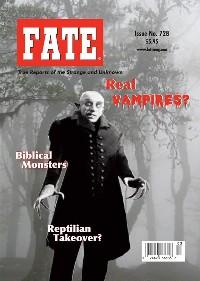 |
| The Modern-Day Subculture Of Real Vampires - October 2015 (Issue No. 728) - FATE Magazine |
|
|
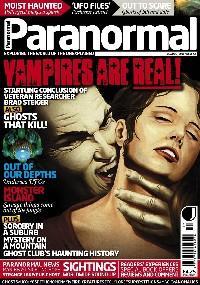 |
| Are Vampires Real? - December 2009 - Paranormal Magazine (UK) |
|
|
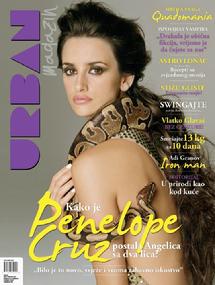 |
| The Truth About Us - May 2011 - Urban Magazine (Bosnia-Herzegovina) |
|
|
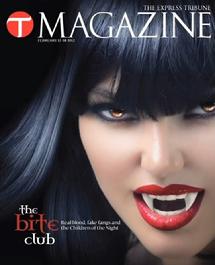 |
| The Bite Club - February 12, 2012 - Express Tribune Magazine (Pakistan) |
|
|
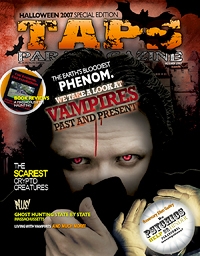 TAPS Paranormal Magazine TAPS Paranormal Magazine
October 2007 Special Edition
"Interview With A Vampire" - Merticus
The following is the unedited transcript from the interview conducted by Amber Vanzant of TAPS magazine. The majority of this interview appears in the October 2007 issue of TAPS; pages 20-23.
QUESTIONS:
1.) Are there different "types" of vampires, and if so, which "type" do you most closely represent?
The most commonly accepted ideology of the real vampire community provides for two primary classifications of vampire; sanguine (sanguinarian) and psi (psychic). The delineation between these two types center around the actual “feeding” method utilized by the individual. Before one can begin to broach the subject of “real vampirism”, it is important to understand the distinction between these two groups of individuals and the modern adapted definition associated with the ascribed “vampi/yre” label. Moreover, it is important to note that individuals who refer to themselves as “vampires” do so with the knowledge they are living humans who one day will succumb to mortality. The mythological, folkloric, and contemporary literary descriptions of vampires are not applicable to “real vampires” as members of the vampire community have come to use the term today.
A vampire is essentially an energy feeder or blood drinker that may display various levels of psychic ability. While the causality, interpretation, and sometimes even the “proper” spelling of vampirism are debated, vampires are generally individuals who cannot adequately sustain their own physical, mental, or spiritual well-being without the taking of blood or vital life force energy from other sources; often human. Without feeding the vampire will become lethargic, sickly, depressed, and often go through physical suffering or discomfort. Vampires often display signs of empathy, sense emotions, perceive auras, and are generally psychically aware of the World around them. To a degree, the specifics of vampirism manifest differently on an individual basis and these nuances sometimes insulate the confusion in defining the vampiric range of ability and experience. The alternate spelling of “Vampyre” is sometimes used depending on the path from which one approaches vampirism. There are numerous vampiric Paths, Houses, Orders, Associations, and Groups within the vampire community that exist both online and offline; often each having their own unique philosophies, teachings, ethical tenets, and protocols.
Sanguine or sanguinarian vampires feed by the drinking of blood - either human or animal. Sanguinarian vampires can vary in their experience of blood hunger and in how often or in what quantities they need to feed, but the unique craving for blood and the physical symptoms associated with neglecting to drink blood are unifying features of sanguinarian vampirism. The consumption of blood from human sources is facilitated through a consensual agreement by verbal or written contract between vampire and donor. Not all members of the vampire community actually acknowledge the difference between psychic and sanguinarian vampirism, and there is a popular but not universally-held theory within the vampire community that the life force energy or "prana" contained within the blood is the source from which they feed, rather than any physical component of the blood itself. This theory is supported by the notably small amount of blood that vampires consume to alleviate their hunger; usually one to two tablespoons, but challenged by the fact that vampires who consider themselves primarily blood drinkers often do not display as many or any of the psychic tendencies that psychic vampires do, and more often report more physical symptoms, such as sense acuity and physical strength, than do the psychic vampires. (VEWRS 2006)
Psi Vampires are understood to feed psychically on life force energy. Psi (or psy) feeding is usually performed on a willing individual or from the ambient energies of a large group or crowd. This term is often mistakenly confused with the pop psychology use of "psychological vampire", used as a metaphor to describe specific socially manipulative behaviors. Psi vampire, refers to a vampire who feeds by some manner of energy transfer; this term may also be shortened to psivamp. Psy vampire, and "psychic vampire" are sometimes considered synonyms for psi vampire, but are also sometimes employed as separate terms with distinctive meanings. For example, "psi" is often employed as a synonym for ESP phenomena in parapsychology, and "psy" is short for either "psychic" or "psychological". Those who make distinctions between these terms may use these meanings as the basis for their reasoning. (VEWRS 2006)
Hybrid (Combo) or Psi/Sang Vampires claim to have no primary feeding method, being able to feed from either source at any time. Others report changing their primary feeding source from energy to blood, or vice versa, at various points in their lives. Some, but not all, vampires who can feed or have fed via both methods choose to describe themselves as Psi/Sang or Hybrid (Combo) vampires. Still other Community members go further to define sub-classes of vampirism based on the detailed methods and sources of psychic feeding. These classes are most often distinguished from one another based on the type of energy gained. Those who feed from natural or elemental energy, and those who feed from humans either during sexual contact, during magickal rituals, or during times of high emotional output may be described as specific types of vampires. Further subcategories of psi feeding energy exist, including terminology to describe those who feed from direct contact with the human aura, those who feed from the ambient energy of crowds and public places, those who can only absorb certain kinds of emotions, etc. (VEWRS 2006)
While I’m not an ardent fan of the “vampire” label, if for no other reason than it often hinders the intended conveyance of who we are, I nevertheless choose to adopt the term. Some may view vampirism as a negative physical or even spiritual condition because of the many hardships brought about by the lack of feeding or ethical struggles sometimes experienced. My personal views hold that vampirism is a biological and inherit condition with a latent spiritual undercurrent brought to the surface after an awakening – a heightened awareness of self in relation to the World and others. I’m capable of feeding by virtually all avenues outlined above, though my primary method consists of psi or pranic feeding from individual human donors with a secondary preference to ambient and elemental energies. I don’t view myself as deficient, handicapped, or disadvantaged to the general populace, nor do I interpret consensual or ambient feeding as morally reprehensible. I seek only to find a harmonic balance in what I need verses what I take, often cycling energy for the benefit of others. Vampirism allows me unfettered access to experiences, emotions, and psychic abilities that many may never have the opportunity to experience and it is my responsibility to learn how to adapt these abilities as seamlessly and appropriately within my life as possible.
2.) How long have you been a vampire?
The vampiric condition, or set of psychic or otherwise incorporeal experiences that often manifest in my daily life, have always been a part of who I am since birth; reaching an acme of intensity around early adulthood. I did not come to describe myself as a “vampire” precipitously, but rather after years of searching first for an answer to what I was going through and secondly for others who shared this analogous set of experiences. These personal studies led me first to the field of “energy work” and eventually to the concept of vampirism. My initial exposure to online vampire community occurred in 1996 with infrequent visits to the ‘RealVampiresNoRP’ chat rooms on AOL and with greater regularity and participatory dialog starting in 1997 on Sanguinarius’ IRC channel for vampire support and through various friendships that have remained to this day. In 1998 I encountered the offline vampire community and have since that time had the pleasure of meeting and conversing with a rather expansive heterogeneousness smattering of self-identifying vampires. In 2005, after a several year hiatus from the vampire community, I became one of the founders of the Atlanta Vampire Alliance; a local vampire House composed exclusively of members from the metropolitan Atlanta, GA area whom also serve as the authors and facilitators of the Vampirism & Energy Work Research Study. I look forward to continued involvement with both the online and offline vampire community despite the ever-changing landscape. I make no apologies for who I am or what it is I do; but rather expend my energies to promoting tolerance and open dialogue between individuals and communities.
3.) What draws you to vampirism? Why do you do it?
Vampirism is fundamentally an extension of who I am on a physical, emotional, and spiritual level; a facet of everyday life and the lens through which I view the World. It is as much a part of who I am as is one’s familial heritage, genetic makeup, mental aptitude, or even core personality. It’s important to realize that others such as myself don’t “choose” to be vampires; much in the same manner as others don’t choose to see spirits or ghosts, experience an extra-sensory perception, or encounter something that science has yet to adequately describe. My association with vampirism arises not out of faith in something unseen or the need to distinguish myself from others, but from a peace in knowing that I have certain abilities that others may or may not possess and it is to what end I use those abilities that defines me as an individual, not a label I choose to adopt or is given to me by society. There is often an indistinct beauty and tranquility experienced through associations with others amidst a tumultuous backdrop of struggling to control our hunger and sensitivity to energy. Vampirism may be physically awkward and at odds with what many consider a “normal” or “mundane” lifestyle, however, much appeal lies in our adeptness to shielding, grounding, and centering energy as well as controlling emotional and sometimes behavioral situations, utilization of healing techniques for ourselves and others, instinctual interpretation of empathic impressions, and an overall heightened perception of living organisms.
4.) What would you say are the misperceptions of modern vampires?
To the lay individual, unaware of modern vampirism, the trapping of the Goth, fantasy, uncontrollable blood lust, and “dark” stereotypes are signature to the conjured images at the mention of the word “vampire”. Honestly, we sometimes bring this misperception upon ourselves by those among us who choose to adopt these very stereotypes by frequenting clubs and events adorning capes and fangs often without adequate disclaimer that such is done out of the simple enjoyment for capturing the mystique, glamour, and air of sophistication and not out of a personal disillusionment with reality. Ironically we sometimes accomplish a lessening of the disdain for many of the attributes that describe us by blending our own subculture under the umbrella of another; essentially hiding among the very stereotype that we sometimes revile. It’s not always out of hypocrisy that we choose to do this, but often arises from a sense of needing to be accepted in broader social groups and to find comradely amongst like kind. Preliminary results for the VEWRS indicate than when over 400 self-identifying vampires we asked whether or not they considered themselves Goth over 65% responded “no”. Not all real vampires adhere to the dress of the romantic literary or Hollywood archetype; such is merely apropos to the themed gatherings some of us attend.
Transitioning past stereotypes, real vampires fall victim to misunderstandings regarding labeling and the meanings behind them. This is best illustrated with the term “psychic vampire”. To the real vampire community psychic or psi vampires are considered those who feed from pranic or life energies. Yet in other communities, and for many in the general public, the pairing of psychic and vampire is indicative of what we refer to as “psychological vampirism”. This “vampirism” involves individuals who create excited or chaotic emotional states or parasitically leech energy from others as a method of sating a psychological need. Often these individuals are negative, depressive, self-consumed, and reckless and are found in every workplace, school, place of worship, etc. Such behaviors and attitudes are not reflective of the real vampire community and besides being unnecessary are ultimately counterproductive to building a donor relationship and a healthy source of positive energies. Psychological instability generally doesn’t serve as catalysts for our behaviors as evidenced by the prevalence rates and co-morbidity of psychological conditions reported by self-identified vampires; but rather likely exist as sequelae associated with the vampiric condition itself. Arguments of sanguinarian vampirism as an extension of blood fetishism arising from pathological addiction or schizophrenia similarly fail when one takes into account the small amount of blood consumed (typically one to two tablespoons), the conscious care and safety given to donors, alternative feeding methods employed during times blood is not available that yield similar effect, and the infrequency at which this is practiced.
Further misperception revolves around the general age of vampires. The majority of those who claim to identify with vampirism fall within twenty to thirty-plus years of age. In fact, I know several vampires in their sixties, some of whom are grandparents. The assumption that the majority of self-identified vampires are teenagers who have fallen victim to the allure of vampirism is without merit. When examining the age distribution from the over 400 self-identifying vampires who responded to the VEWRS and AVEWRS surveys you find a median age of 28 with strong representation throughout the last fifty years. Further support is lent to this argument by the approximate 63% of the respondents from the VEWRS indicating they either are currently, formerly, or have completed college. We are an aging subculture not unlike any other and the diversity of our members range from doctors, lawyers, soldiers, scientists, teachers, artists, and parents of every age, gender, ethnicity, creed, and nationality.
Perhaps the most commonly misperceived notion of vampires is the nature of our religious and spiritual beliefs. While some vampires consider vampirism to be a religion, this in no way reflects the opinion held by the majority of vampires. Our religious and spiritual beliefs run the gamut from Atheism to Paganism to Christianity to Satanism to Buddhism to Daoism to Shamanism to Magick to Eclectic Spirituality to Wiccan, etc. Pluralism and religious tolerance best describes the viewpoint of many vampires. While some may struggle with ethical or dogmatic issues relating to feeding, the vast majority of vampires view their personal spiritual or religious beliefs as separate, though sometimes integrated, from the physical vampiric condition or state of being. We don’t represent “evil” views nor seek to indoctrinate others with a particular brand of vampirism or vampiric ritual. Our fierce independence and adherence to seeking our own truth in matters regardless of how unsettling or challenging to our preexisting beliefs distinguishes us from those who accept life as it’s presented merely on face value.
5.) Do you feel that vampires are discriminated against?
I would be hesitant to characterize vampires or vampirism activists’ as those who struggle daily against tyranny, oppression, or censorship. Certainly we are not on par with many disenfranchised communities or as publicly notable as say the gay, lesbian, and transgendered community, women’s issues groups, or emerging religious movements. Despite increased television, radio, and print publicity over the last few years revealing to many the existence and superficial workings of our community, most vampires remain underground or as solitary practitioners. This is a conscious choice for many necessitated from fears of workplace, family, friend, and societal discrimination married with potentially harmful or uncomfortable repercussions if one is open about their vampirism. For others this decision is made to preserve the sanctity, honor, and mystery of a unique and often closely interlinked community or family. Not unlike the hacking community, our community may appear fractious but at the same time organized to a far greater level than is widely known and in contrast to similar and related subcultures. Vampires share a sense of privacy rife with paranoia while at the same time accepting of those who peaceably seek us out and have a sincere desire to learn. In recent years the pagan, occult, and energetic communities have become more accepting as we have reached out and increased not only their awareness but clarified many misconceptions of our practices and beliefs. As a realist, I know that vampires will likely never be synonymous with fraternal organizations such as the Freemasons, however, if society continues to be educated on how to separate the truth from fiction much of the silent discrimination and sometimes misdirected hatred leveled against us can be abated over time.
6.) Do you believe that there are "dark" vampires out there who really do kill people?
It’s a fallacy at best to suggest that “vampires”, using the definition of modern vampirism outlined above and accepted by the majority of the community, commit ritualistic crimes involving human sacrifice, cannibalism, and murder. We resent when the actions of mentally disturbed individuals are lauded as an example of an inextricable link to modern vampirism; some going further to insinuate that our subculture encourages and condones such behavior. We don’t engage in practices that harm our donors and are bound by the laws governing our respective countries. Those who commit acts of violence or similarly egregious behavior within the vampire community are almost universally role players or dabblers who’ve lost touch with reality or long-term psychologically imbalanced persons who pose a threat to society whether acting under the guise of a “vampire” or engaging in normal life functions. Individuals such as Rod Ferrell and Mathew Hardman were never members of the vampire community or by any stretch of the imagination what we would consider vampires. Some in the media and individuals such as Dawn Perlmutter, Ph.D. in her 2003 paper The Forensics of Sacrifice: A Symbolic Analysis of Ritualistic Crime and book Investigating Religious Terrorism & Ritualistic Crimes, through poorly executed, unsubstantiated, and ethically questionable armchair “research”, characterize vampires as criminals who engage in subversive and dangerous practices. Real vampires are mistakenly thrust into the same category of ritual animal or human sacrifice, fetishism, fanatical religious expression or cults, and labeled as unstable threats to themselves and others.
Within the vampire community numerous ethical guidelines such as the Black Veil v2.0 (Michelle Belanger w/other versions and contributions by Father Sebastiaan) and basic common sense ethical standards are recognized. We do not engage in moral indignation from any ostracism experienced as a result of vampirism nor are we hesitant to involve law enforcement when we witness violations of laws or endangerment to others. Several vampire organizations actually work with children and women abuse centers, teenage runaways, and with officials to recognize early warning signs and prevent criminal actions by wayward individuals. It’s perplexing and troubling at the same time to witness the pervasive attitude leveled against vampires when the actions of those unrelated by all accounts with the vampire community commit ritualistic crime linked only to vampirism by the involvement of “blood” or “blood consumption”. Such acts must be weighed against the principles of real vampirism clearly defined and available for consumption by the media and general public at any local bookstore and throughout numerous respected web sites.
7.) Where do vampires fit into the paranormal world?
If one defines paranormal as being outside the realm of scientific explanation, then at present vampirism would most aptly be described as a phenomenon that is straddling the fence between what can be proven or recorded and what still requires a measure of faith for belief. Vampires are largely grounded individuals, and despite our incredulous disposition, are willing to entertain possibilities when presented with evidence. Many are hopeful for the existence of something magickal or wondrous as are most people, but do not exist permanently in a state of fantastical delirium. For years there have been strives in paranormal research with emphasis on psychic, telekinetic, auric, and extra-sensory experimentation; though far too many of them with a narrow focus on the individual and not directed to discovering correlative patterns within a larger population. There are aberrant occurrences throughout society that we can’t explain which don’t automatically invoke a reaction of ridicule or dismissal, but rather an inquisitive search for answers. Therefore, the primary aim of the Vampirism & Energy Work Research Study is to lay a foundation where additional anthropological, psychological, scientific, and phenomenological research can be properly conducted on the vampire and energy worker community. We are exploring the shared commonalities, differences, and developing trends of an entire subculture in a concise and centralized format with the two detailed research surveys; VEWRS and AVEWRS. It’s our fervent hope that this research combined with publications that highlight the personal viewpoints of vampires, such as Michelle Belanger’s Vampires In Their Own Words - An Anthology of Vampire Voices, will spark interest in a closer examination of vampirism and energy work and how aspects blend among the paranormal and tangible realm.
|
Vampire Community Support & Research

www.atlantavampirealliance.com – Atlanta Vampire Alliance [AVA]
www.atlantavampirealliance.com/forum – Vampirism Discussion Forum

www.suscitatio.com – Suscitatio Enterprises, LLC
The mission of the Atlanta Vampire Alliance is to promote unity in the greater Atlanta community while being available to the newly awakened to encourage self-awareness and responsibility. We honor the traditions of history, respect, and discretion regarding community affairs, while advocating the safety and well-being of our members. Emphasizing research and supporting social gatherings, we highlight the importance of education and strength of involvement as a cohesive force in our area. By taking an active role, we will serve not only ourselves, but also our community, and our city.
The Atlanta Vampire Alliance promotes itself as a neutral vampire community organization. We are not directly affiliated with any other house, order, or council. The majority of our members share a similar background of solitary participation, and therefore, when drafting our fundamental articles, we made a personal decision to avoid using a hierarchal or social-promotion system. While we respect others who choose to institute such a caste system, we remain steadfast in our chosen structure, allowing us to freely encourage camaraderie and proactive involvement within the vampire community. Despite the lack of common ritualistic protocols, our policies regarding those we do accept and the maturity of our applicants are taken very seriously. Our members enjoy equal status and voice regardless of the path, religion, or philosophy they hold. Further complimenting this system, the five founding members of the AVA conduct business as a cooperative body, sharing a vision of responsibility, tolerance, and awareness among both the greater and local vampire community. In addition to our participation in a varied spectrum of social activities, our energies are also directed towards the support of the local vampire populace, and those who come to us seeking guidance. The majority of our work is conducted offline with frequent monthly meetings. Aside from the strong offline presence, we host an expansive open forum to all who wish to join regardless of location or affiliation. The topics of discussion in this forum range from psi/sang vampirism to occult magick to metaphysics to local issues.
The primary focus of the AVA is to expand the educational boundaries of our own community while improving the quality of the study of the vampiric condition among the non-vampiric population. Members of our house have been working on various educational and professional papers over the course of several years. Our base membership and associates encompass decades of involvement from all paths of the vampire community. It is from this collective of unique individuals that we draw our strength in the fields of occult, paranormal, parapsychological, phenomenological, psionics, and general underground community research. The Atlanta Vampire Alliance’s research company, Suscitatio Enterprises LLC, released the Vampire & Energy Work Research Survey (VEWRS) in March 2006, the Advanced Vampirism & Energy Work Research Survey (AVEWRS) in August 2006, and is currently involved in other related studies of interest to both the community and institutional researchers. Composed of over three hundred and fifty and six hundred questions respectively and covering a vast range of vampiric personal and community experiences, this study is unique in its scope and purpose.
All who share a sincere interest in our research, forums, and community hosted events are encouraged to participate. We extend an open hand to those of all houses, orders, or paths who visit our city; as we share a common vision of productive growth and organization within the community. For more information, please visit us at www.atlantavampirealliance.com and www.suscitatio.com.
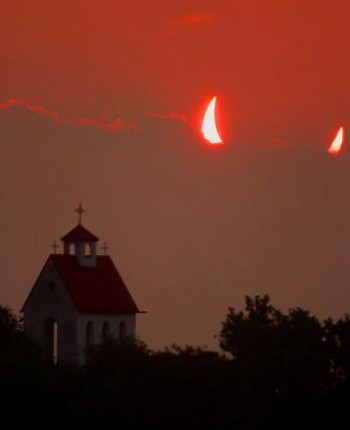
|
Vampire Community Resources
|
|
|